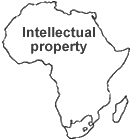

 |
 |
|
|
IP LitigationHahn & Hahn Inc has over 50 years experience in all aspects of IP litigation including infringement and validity cases for patents, trademarks and designs, as well as acting in counterfeit goods, unlawful competition and trade secrets matters. Please contact Janusz Luterek (janusz@hahn.co.za) for further information in this regard. 1. Patent Infringement and Validity of Granted Patents 1.1 Infringement and Defences Thereto In order to be successful in an infringement matter in South Africa a patentee must show that an infringing device, system, apparatus, or method includes all of the essential integers of at least one independent claim of a patent. In defence, an alleged infringer can deny infringement or rely on invalidity of the patent on any one of the grounds set out in Section 61 of the Patents Act 57 of 1978 and/or on use prior to the priority date of the patent in question i.e. the so called "Gillette Defence". Furthermore, an infringer can counterclaim that the patent in question is invalid and request the Commissioner of Patents to revoke a granted patent. The patentee may, where there is subject matter in the patent which could form the basis for a valid patent, apply to the Commissioner for leave to amend the patent which, if granted, will result in the scope of the patent being reduced but the amended patent being valid. This may or may not get the infringer off the hook as the amended patent may still be infringed. An infringement case is heard by the Court of the Commissioner of Patents, a division of the High Court, and may be brought either by way of Summons where damages are sought and will require oral evidence to be led, or by way of Motion where only an interdict, whether urgent, interim, or final, is sought in which case the evidence is by way of Affidavit in most cases. An action brought by way of Summons may take anywhere from 6 to 18 months before it is heard by the court of first instance whereas an application by way of Motion may only take 3 to 6 months to be heard. It is usual to appoint counsel (barristers) to assist in the litigation. Depending on the complexity of the matter, both a junior and a senior counsel may be appointed. Thus it is not unusual for a matter in which only a junior counsel is employed to cost between EUR25000 and EUR62500 in the court of first instance, and the same costs may be expected in each stage of an appeal. In an infringement action, besides an interdict, the court may award damages, or reasonable royalties in lieu of damages, and a portion of the costs in suit. Please note however that an order of costs usually only covers about 50 % of the actual costs incurred and are awarded at the discretion of the Commissioner of Patents. 1.2 Validity In order to be valid, the claims of a South African Patent must be novel and inventive and all formal requirements ought to have been complied with. The novelty requirement is an absolute requirement i.e. an invention as claimed should be new anywhere in the world, not just in South Africa. Likewise, the inventive step requirement is an absolute one. The South African Patent Office is a non-examining office and all patent applications which meet the formal requirements are granted. It is not normal practice for Patent Attorneys to conduct patent searches for clients unless specifically instructed to do so as the costs of the searches would often exceed the costs of preparing and filing the patent several fold. Furthermore, the South African Patent Office records are in a complete disarray and it is not possible to conduct a reliable search for South African Patents at the South African Patent Office. Yet further, international databases which may be searched cover only the major countries of the world and have only scant information on South Africa, especially data prior to 1994. Thus, even an extensive international patent search does not have a guaranteed accuracy and it is internationally accepted that, despite the high cists thereof, database searches have an accuracy of around 60%. The validity of a granted patent may only be challenged by way of an Application for Revocation before the Court of the Commissioner of Patents and again, depending on the complexity of the matter, both a junior and a senior counsel may be appointed. Thus it is not unusual for a matter in which only a junior counsel is employed to cost between EUR25000 and EUR62500 in the court of first instance, and the same costs may be expected in each stage of an appeal. |
|